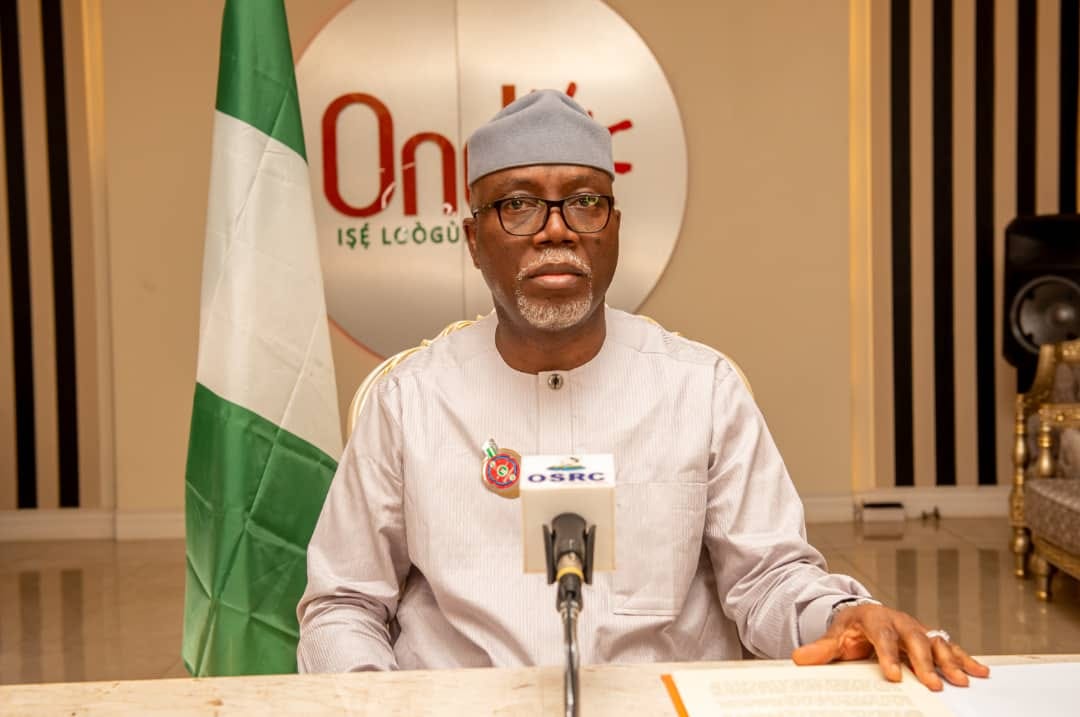- Nnamdi Kanu Fights Bail Conditions: I Want to Attend Rallies, Grant Press Interviews
Leader of the Indigenous People of Biafra, Mr. Namdi Kanu, has filed a motion to fight the bail conditions granted to him by the Federal High Court in Abuja.
Kanu asked the court, where he is being prosecuted along with others on treasonable felony charges, to vary the conditions of the bail which it had granted him.
Justice Binta Nyako, had in her ruling delivered on April 25, 2017, granted bail to Kanu, but dismissed the separate bail applications filed by his co-defendants – the National Coordinator of IPOB, Mr. Chidiebere Onwudiwe; an IPOB member, Benjamin Madubugwu; and a former field maintenance engineer seconded to MTN, David Nwawuisi.
Recently, after the court delivered its ruling on the defendants’ bail applications, the prosecuting counsel, Mr. Magaji Labaran, amended the charges to include another co-defendant, Bright Chimezie.
In his application filed on July 1, 2017, Kanu maintained that parts of the bail conditions prohibiting him from being seen in a crowd exceeding 10 persons, granting press interviews and holding or attending rallies, violated his constitutional rights.
His lawyer, Mr. Ifeanyi Ejiofor, stated in the motion that the undesirable bail terms and conditions were contained in paragraphs 2(vii) and (viii) of the court’s ruling, granting bail to his client on April 25.
Anchored on Sections 6(6), 36(5), 39, 40, and 42 of the 1999 Constitution of the Federal Republic of Nigeria (as amended), as well as Section 165 of the Administration of Criminal Justice Act 2015, the motion is therefore, seeking, “An order of this honourable court varying the bail conditions given to the first defendant/applicant on April 25, 2017, by outrightly (sic) vacating paragraph 2(vii) and (viii) in the said order, which stipulates ‘that the first defendant should not be seen in a crowd exceeding 10 people; and that the defendant should not grant any interviews, hold or attend any rallies, respectively.”
Ejiofor argued that the bail conditions were excessive, while maintaining that by virtue of Section 36(5) of the 1999 Constitution, his client was presumed innocent.
He contended that the part of the condition barring him from being seen in a crowd exceeding 10 people contradicted his client’s right to freedom of association, and peaceful assembly, as guaranteed by Section 40 of the Constitution.
He added that the part of the conditions barring Kanu from granting press interviews constituted an infringement of the defendant’s right to freedom of expression provided under Section 39 of the Constitution.
The lawyer stated, “Section 36(5) of the 1999 Constitution of the Federal Republic of Nigeria as (amended) presume as innocent citizens charged with criminal offence until guilt is proved.
“Paragraph 2(vii) in the order, which stipulates that the first defendant/applicant cannot be seen in a crowd exceeding 10 people, contradicts the applicant’s right to freedom of association, and peaceful assembly granted by Section 40 of the Constitution of the Federal Republic of Nigeria, 1999, (as amended).
“Section 39 of the 1999 Constitution of the Federal Republic of Nigeria as (amended) provides for citizens’ rights to freedom of expression and press.
“The bail conditions granted the first defendant/applicant, particularly conditions in paragraph 2(vii) and (viii) in the said order, clearly discriminated against the first defendant/applicant, and subjected him to certain disabilities and restrictions.”
In breach of the bail conditions being challenged by Kanu, the IPOB leader had granted press interviews and even recently led and addressed rallies of huge crowds against the holding of governorship election in Anambra State.
The charges against the defendants included conspiracy and treasonable felony by allegedly conspiring among themselves to broadcast on Radio Biafra agitation for the secession of Republic of Biafra from Nigeria.
They were also accused of improper importation of goods and illegal possession of firearms.
Among the charges was also publication of defamatory matter by allegedly referring to the then President-elect, Maj-Gen. Muhammadu Buhari (retd.), and now President of the Federal Republic of Nigeria, as “a paedophile, a terrorist, an idiot, and an embodiment of evil” in a radio broadcast on April 28, 2015.
The trial has been adjourned until October 17.
The prosecution has yet to file its response to the motion.


 News3 weeks ago
News3 weeks ago
 Business3 weeks ago
Business3 weeks ago
 Technology3 weeks ago
Technology3 weeks ago
 Investment3 weeks ago
Investment3 weeks ago
 Banking Sector3 weeks ago
Banking Sector3 weeks ago
 Banking Sector3 weeks ago
Banking Sector3 weeks ago
 Appointments3 weeks ago
Appointments3 weeks ago
 Investment3 weeks ago
Investment3 weeks ago




























